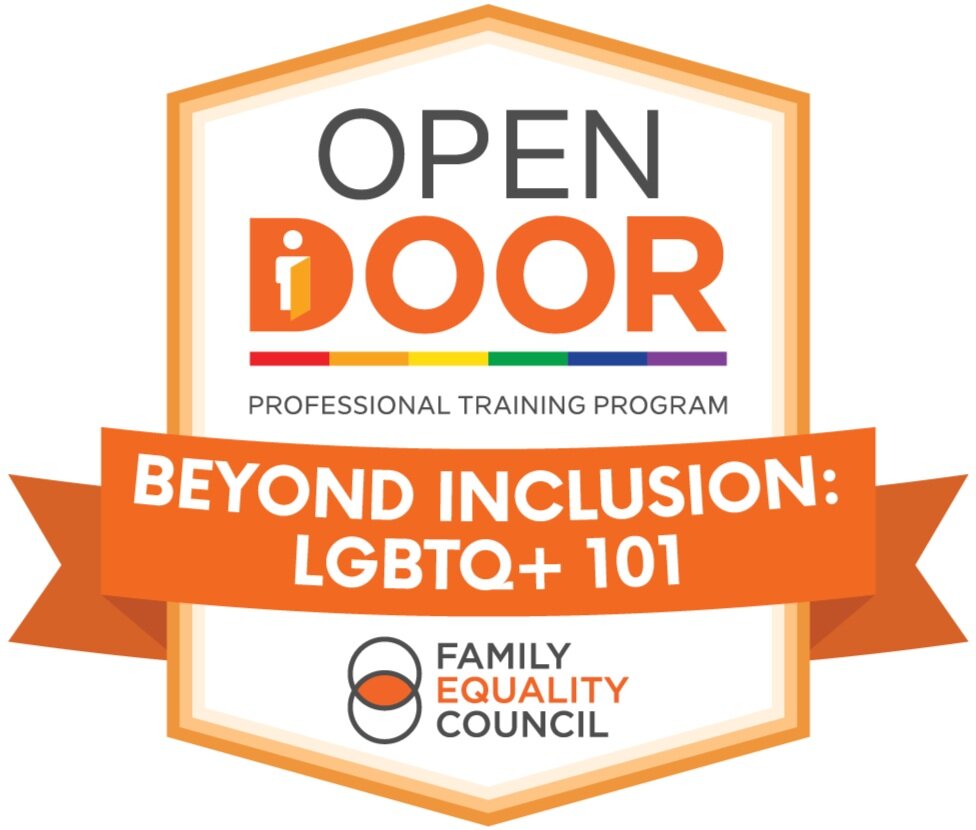Being diagnosed with infertility feels like wearing the Scarlet Letter A or receiving a failing grade. You’ve done something wrong; something to deserve this punishment. Well, I’m here to set the record straight. There will be no witch hunt, no burning at the stake. Sure, you’re a fallible human being, but it’s not your fault. It REALLY isn’t.
I like to think of infertility as a process, a journey, and use the metaphor of a train that stops at multiple spots before reaching its destination. Self-blame is an expected stop, but it is NOT your destination.
“But Sarah,” client’s will tell me, “It IS my fault. I’m the one that has low ovarian reserve and endometriosis” or “I’m the one with azoospermia.”
And my response is, “Okay, I hear you. And how is that your fault?”
Client: “Well, I’m the reason we’re not getting pregnant. So you see, I’m to blame.”
Me: “I see. And how is that YOUR fault?”
Client: “Well…I guess I didn’t intend to become infertile or even do anything I can think of…”
Me: “So…think about it….HOW IS IT YOUR FAULT?”
Client: “I guess it isn’t”
Blaming, pointing fingers is natural. You want a reason, an explanation, a sense of cause and effect in your world. You want to know what you did (or didn’t do) so you can do better next time. You desire some sense of control; a method to the universe’s madness. Whether its been medically determined that it’s something in your body, your partner’s body, or unexplainable, playing the blame game distracts you from the real work that needs to happen. What work is that? You need to grieve. Cry, scream, throw ice at a brick wall – feel, feel, feel. You need to grapple with the question “Why Me?” or “Why Us?” and eventually come to a reasoning that allows you some peace and self-acceptance.
Several years ago, Dr. Elisabeth Kübler-Ross proposed five stages of grief and loss after studying terminally ill patients, and I believe those stages are relevant as one unpacks the lived experience of infertility. Let’s address those stages now – –
Denial: It’s not me. Can’t be me. They’re wrong.
Most fertility clinics practicing the ethical standards of the American Society for Reproductive Medicine (ASRM) require a psychological consultation before pursuing donor-assisted reproduction. That is, clients come to me because they have (often reluctantly and as a last choice) been informed the best way to create and sustain life is to use the eggs or sperm of another individual. My job is to assess their psychological resources, preparedness, understanding of what’s happening, and provide support and resources for parents of donor-assisted children. It’s the most effective and ethical way to prepare adults with the best practices to ensure psychologically healthy kiddos. A few months ago, I had a couple in my office planning on utilizing an egg donor to hopefully create their family. The woman was in her late 40’s and exclaimed at one point, “Well, I’m just hoping that when they do the procedure some of my eggs will magically be used!” I explained to her that medications used will suppress her reproductive system entirely, and that a life created will be from the donor’s egg and her husband’s sperm. “Still,” she said, “You never know what could happen…”
This woman was in denial, and I recommended that her reproductive endocrinologist spend more time educating this couple on the procedure. Denial is a natural stop on the infertility journey, but it’s not a good place to make major medical decisions.
Anger: How can this happen to me? Who is to blame? Why would this happen?
I spent at least a year raging at the universe. Something I wanted so badly and worked for so hard wasn’t happening. Instead, my body became a pin cushion, dawning multiples bruises and an extra layer of fat. But it was my mind that suffered the most. I began grappling with basic philosophical assumptions I’d held since late adolescence. I had a strong internal locus of control, which means that I believed to my core that hard work paid off. I’d met a great partner, had a savings account, owned my own home, and could pay my bills. I consciously and intentionally approached parenthood. In the infertility world, however, effort does not always equate to outcome. I’ve known far too many individuals and couples that went above and beyond, and still, ended up childless. I’ve also seen plenty of people just think about getting pregnant -and- poof! I have a female cousin that’s ten years younger than me. When she married, I purchased the four Christmas stockings from her Pottery Barn registry. Since it was only she and her new hubby I asked, “Who are the other two stockings for?” and she replied immediately, “For the two children I’m going to have.” Three years later, she has just that. For those struggling with infertility, that kind of confidence and fertility privilege (see Aphrodite & Fertility Privilege post for more information) are stripped away over time.
So be angry. Own it. But please, don’t take it out on yourself. Confide in close friends and perhaps a counselor who has professional experience with infertility. Cut yourself some slack – you may be angry for quite a while. Give yourself a pass to avoid baby showers and stores – they put me in a funk that lasted for days. Take your self-care strategies up a few notches to balance out the roller coaster that is infertility.
Bargaining: This is the negotiation stage, where one often tries to strike deals with God, the universe, and/or ourselves.
When we first moved to Austin and signed up at our 2nd fertility clinic, I started volunteering at various organizations. I spent my evenings and weekends at animal shelters, delivering food to the elderly, or promoting goods at fair-trade stores. Although I wasn’t completely conscious of this, I was bargaining with the universe. Okay universe, the negotiation goes, I will put a lot of myself out there – helping others – benefitting others. Now, all I ask in return is that you give me a healthy child. It’s a basic deposit and withdrawal system. The more I deposited that was deemed “good,” the more likely I might be successful when I made that all important withdrawal (I.V.F.). But life being what it is – it doesn’t always work out that way. If you catch yourself bargaining, go gentle. It’s completely normal.
Depression: Getting so down that you want to give up. You may ask, “What’s the point? A sense of futility is common. “None of this is working. Why should I keep trying?”
There is a strong sense of meaninglessness and powerlessness. At this point, client’s are often weepy, and may vacillate between periods of great hope to disappointment and disillusionment. On the other hand, I’ve seen several people who become increasing numb, or at least, appear that way. Disappointment becomes the norm, and often individuals don’t want to express hope for fear of losing – yet again. Depression is an important stop on the journey, as it begins to invite a person to create meaning. I once heard a definition of “spirituality” that sticks with me – Human attempts at meaning making. To answer the questions “Why has this happened to me” and “What will I make of or do with this experience?” If you’re not there yet, that’s okay. I hope you get here.
Acceptance: A sense that no matter what happens, you’re going to be okay.
I often ask clients to tell me how they envisioned the family they wanted, the “white picket fence” narrative. No one initially envisions having a child through ART – assisted reproductive technology. When this dream is shattered, the grief begins. Acceptance is when a person moves from a narrative of “this is how it should be” to “this is how it couldbe.” An openness to new possibilities and a letting go of past expectations happen at the same time.
I love the quote from John Lennon. “It’s going to be okay in the end. If it’s not okay, it’s not the end.”
Acceptance is what allowed me to stop infertility treatments and pursue another route – domestic adoption. Acceptance is what allowed my heart to open up so wide as to love a child not of my own creation and keep in contact with her birth family. Acceptance is what challenged me to create a new narrative about how my life was going to be, not how it should have been. Acceptance is what empowered me, over time, to love myself – again.
I’d like you – the reader – to reflect upon one question –
How did you consciously and intentionally become infertile?
More than likely, you didn’t cause infertility by drinking too much caffeine or using pot in the 80’s. “Shit happens,” and it happens to perfectly good people who try really hard.
Even if it isn’t your fault, it is yours to deal with. And how will you? I often ask clients to put on the hat of their 5 or 10 year older self. What will he or she think then? “Since you get to live with yourself for the rest of your life,” I often say, “What will make you most proud regarding this journey?”
My personal answer – to fight like hell. To not accept my infertility as the universe’s message that I’m not fit as a mother or that motherhood isn’t my calling. What I do accept? That life is strange, wonderful, and unpredictable. That when faced with circumstances beyond my control, I could still be empowered to decide how to make meaning out of my infertility.







